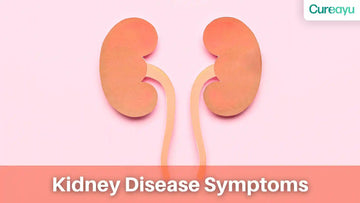Maintaining kidney health is crucial for overall well-being. The kidneys play a vital role in filtering waste products and excess fluids from the blood, balancing electrolytes, and producing hormones essential for bone health and red blood cell production. When kidneys are not functioning properly, it can lead to serious health issues such as high blood pressure, anemia, weak bones, and nerve damage. Additionally, chronic kidney disease (CKD) can increase the risk of cardiovascular diseases and can ultimately lead to kidney failure, requiring dialysis or a kidney transplant. Understanding the importance of kidney health, recognizing the signs of potential kidney problems, and knowing the types of kidney diseases can help in taking proactive steps to protect these vital organs. Here, we'll delve into the significance of kidney health, explore common kidney-related issues, and provide practical tips to keep your kidneys functioning optimally.
Also Read: How Healthy Eating Prevents Kidney Stones
Importance To Maintain Kidney Health
- Filtration of Blood: Kidneys filter about 200 liters of blood daily, removing waste and toxins.
- Fluid Balance: They regulate fluid levels in the body to maintain blood pressure.
- Electrolyte Balance: Kidneys keep levels of electrolytes like potassium and sodium stable.
- Red Blood Cell Production: They produce hormones that help in making red blood cells.
- Bone Health: Kidneys activate vitamin D, necessary for calcium absorption and bone health.
- Regulation of Blood Pressure: They produce hormones that regulate blood pressure.
- Detoxification: They remove drugs and toxins from the body.
When Things Go Wrong
When kidneys aren't functioning properly, waste products and excess fluids build up in the blood, leading to a range of health problems such as high blood pressure, anemia, weak bones, and nerve damage. These complications can significantly impact one's quality of life and overall health. Chronic kidney disease (CKD) is a common condition that gradually impairs kidney function over time. In India, CKD is a growing health concern, affecting approximately 17% of the population. Early detection and management are crucial to slowing the progression of kidney disease and preventing the need for dialysis or kidney transplantation. Recognizing the signs of kidney problems and seeking prompt medical attention can make a substantial difference in outcomes.
Also Read: The Transformative Power of Yoga: 10 Benefits of Yoga for Mind and Body
Types Of Kidney Disease
- Diabetic Nephropathy: Kidney damage caused by diabetes occurs due to high blood sugar levels over time, leading to the gradual destruction of the kidney's filtering units. This condition can progress to chronic kidney disease if not properly managed.
- Hypertensive Nephropathy: Kidney damage caused by high blood pressure involves the thickening and hardening of the kidney's blood vessels, reducing their ability to filter blood effectively. This can result in progressive kidney damage and chronic kidney disease.
- Glomerulonephritis: Inflammation of the kidney's filtering units, called glomeruli, can be triggered by infections, autoimmune diseases, or other conditions. This inflammation impairs the kidney's ability to filter waste and excess fluids, potentially leading to kidney failure.
- Polycystic Kidney Disease (PKD): This inherited disorder causes numerous cysts to form in the kidneys, enlarging them and impairing their function. Over time, PKD can lead to chronic kidney disease and other complications, such as high blood pressure and kidney infections.
- Kidney Stones: Crystallized minerals and salts form stones in the kidneys, which can cause severe pain and block the flow of urine. If untreated, kidney stones can lead to recurrent infections and damage the kidneys.
- Interstitial Nephritis: Inflammation of the kidney tubules and surrounding structures, often caused by infections, medications, or autoimmune diseases. This condition can impair the kidneys' ability to filter waste and regulate body fluids and electrolytes.
- Acute Kidney Injury (AKI): A sudden loss of kidney function, often due to severe illness, injury, or complications from surgery. AKI can be life-threatening and requires prompt medical intervention to prevent permanent kidney damage.
10 Tips to Keep Kidney Healthy
1. Stay Hydrated: Drink plenty of water throughout the day to help your kidneys function properly by flushing out toxins and preventing kidney stones. Aim for at least 8-10 glasses of water daily, but adjust based on your activity level and climate conditions. Staying hydrated also helps maintain your body's overall fluid balance.
2. Eat a Balanced Diet: Focus on a diet rich in fruits, vegetables, whole grains, and lean proteins. These foods provide essential nutrients that support kidney health. Avoid excessive salt, which can raise blood pressure, and limit foods high in phosphorus and potassium if you have kidney issues. A balanced diet helps manage weight and reduces the risk of diabetes and high blood pressure, major risk factors for kidney disease.
3. Monitor Blood Pressure: Keep your blood pressure within a healthy range, as high blood pressure can damage the kidneys' delicate filtering units. Regularly check your blood pressure and follow a healthy lifestyle, including a low-sodium diet, regular exercise, and medication if prescribed by your doctor. Managing blood pressure is crucial in preventing kidney damage.
4. Monitor Blood Sugar Levels: Especially important for diabetics, as high blood sugar levels can damage the kidneys over time. Regular monitoring and management of blood sugar through diet, exercise, and medication can prevent or delay the progression of diabetic nephropathy. Maintaining healthy blood sugar levels protects your kidneys from long-term damage.
5. Maintain a Healthy Weight: Obesity increases the risk of developing kidney disease, as it can lead to conditions like diabetes and high blood pressure. Aim for a balanced diet and regular physical activity to achieve and maintain a healthy weight. Losing excess weight can significantly improve kidney function and reduce the strain on these vital organs.
6. Exercise Regularly: Stay active to improve overall health, including kidney function. Aim for at least 30 minutes of moderate exercise, such as walking, cycling, or swimming, most days of the week. Regular physical activity helps control weight, lower blood pressure, and improve blood glucose levels, all of which are beneficial for kidney health.
7. Quit Smoking: Smoking can damage blood vessels, including those in the kidneys, reducing their ability to function properly. Quitting smoking improves overall health and reduces the risk of chronic kidney disease and other serious conditions like heart disease and cancer. Seek support from healthcare providers, support groups, or smoking cessation programs to quit effectively.
8. Limit Alcohol Intake: Excessive drinking can affect kidney function and lead to conditions such as high blood pressure and dehydration, both of which strain the kidneys. If you choose to drink alcohol, do so in moderation—up to one drink per day for women and two drinks per day for men. Limiting alcohol intake protects your kidneys and supports overall health.
9. Avoid Overuse of Painkillers: Non-prescription painkillers, such as ibuprofen and naproxen, can harm kidneys if taken frequently or in high doses. Always follow the recommended dosage and consult your doctor before using these medications regularly. Consider alternative pain management strategies, such as physical therapy or acupuncture, to reduce reliance on painkillers.
10. Get Regular Kidney Function Tests: Especially if you have diabetes, high blood pressure, or a family history of kidney disease, regular kidney function tests are crucial. Early detection of kidney problems allows for timely intervention and management, potentially slowing the progression of kidney disease. Discuss with your healthcare provider how often you should be tested based on your risk factors.
Also Read: Understanding Women's Health Problems: Risks, Issues, and Care
Conclusion
Your kidneys are essential to your overall health, and keeping them healthy should be a priority. By adopting a healthy lifestyle, staying hydrated, and getting regular check-ups, you can reduce the risk of kidney disease and maintain optimal kidney function. Remember, prevention is always better than cure when it comes to kidney health.












